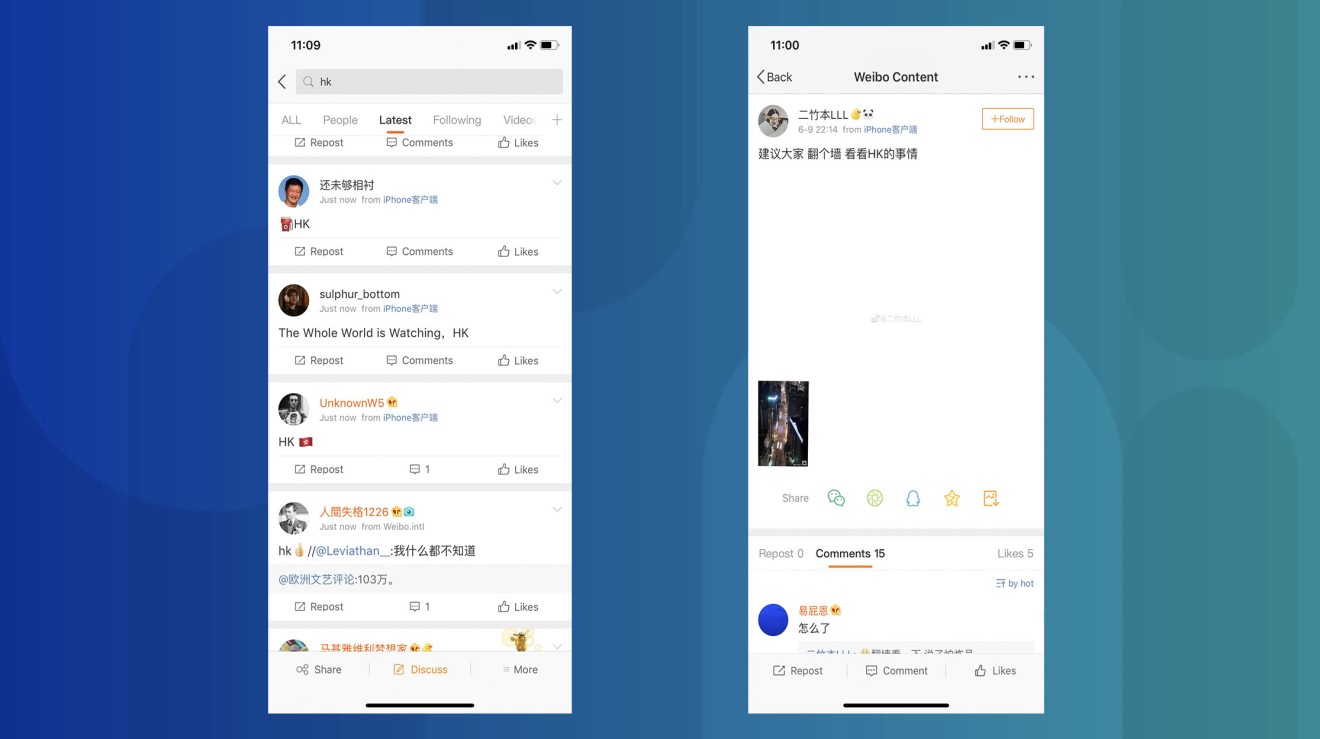
‘Million-strong’ Hong Kong rally against extradition bill is censored in China
Comments censored on Weibo as China’s Great Firewall blocks coverage of events in Hong Kong
It’s less than a week after the 30th anniversary of the June 4 Tiananmen Square crackdown, and China’s censors are busy at work again.
On June 9, more than one million people took to the streets in Hong Kong, according to event organizers, to rally against an extradition bill that people fear will allow the Chinese government to snatch anybody they want from Hong Kong. It was the largest protest in the city in over a decade, with approximately one in seven people in Hong Kong joining the march.
But in mainland China, where the government has an increasingly tight grip on online information, the event was largely unnoticed.

Mainland news outlets had no major coverage of the event, except for some mentions in state media.
Many in China still use VPNs to get past the Great Firewall for information, though, and some people who saw the news tried to start a discussion. Many of the comments were promptly censored.
“I suggest that everyone climb out of the wall and see what’s happening in Hong Kong,” said one Weibo user, referring to China’s Great Firewall that blocks a number of foreign websites. The user’s Weibo account can no longer be found.
“Such a big event happening in Hong Kong today and we can’t see any news inside the wall,” another Weibo user wrote in a now-censored post that included screenshots of a CNN story.

Apart from scrubbing posts that mention the protest, a search of relevant keywords on Weibo -- including “Hong Kong,” “HK” and “extradition bill” -- only generates results from official sources or entertainment news. People are also saying that their WeChat accounts were suspended after sharing pictures of the protest in group chats.
China has a long history of censoring social media posts, but censorship is getting increasingly powerful through the use of machine learning and image recognition. It’s increasingly encroaching on more parts of the internet, as well.
“The presence of the wall means that what triggered heated discussion among everyone in Hong Kong doesn’t cause a splash on the mainland internet,” a Weibo user said in a post that’s no longer available. “It’s really two worlds in and outside China.”
For more insights into China tech, sign up for our tech newsletters, subscribe to our Inside China Tech podcast, and download the comprehensive 2019 China Internet Report. Also roam China Tech City, an award-winning interactive digital map at our sister site Abacus.

